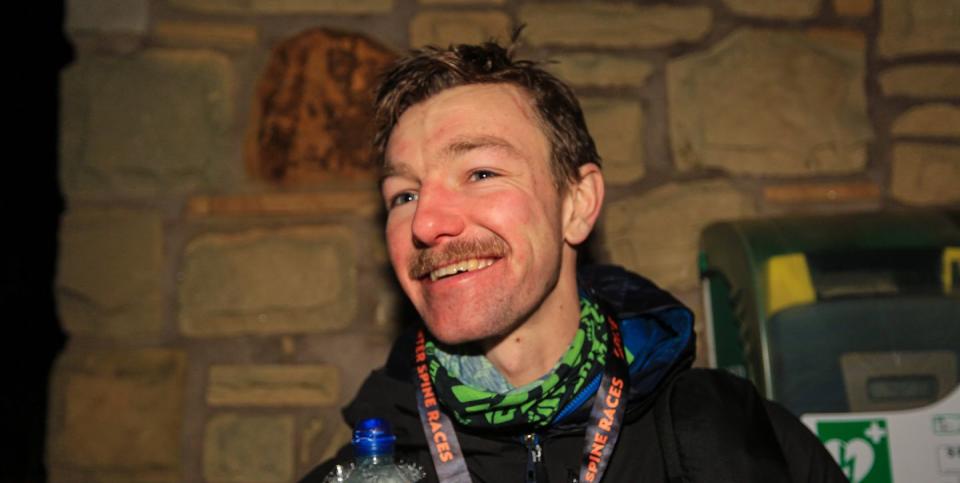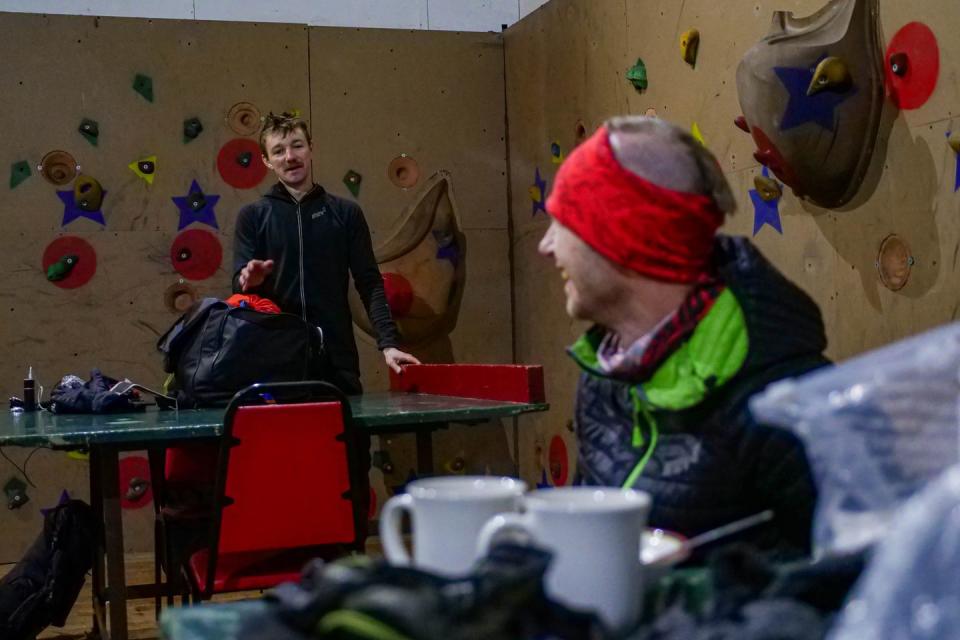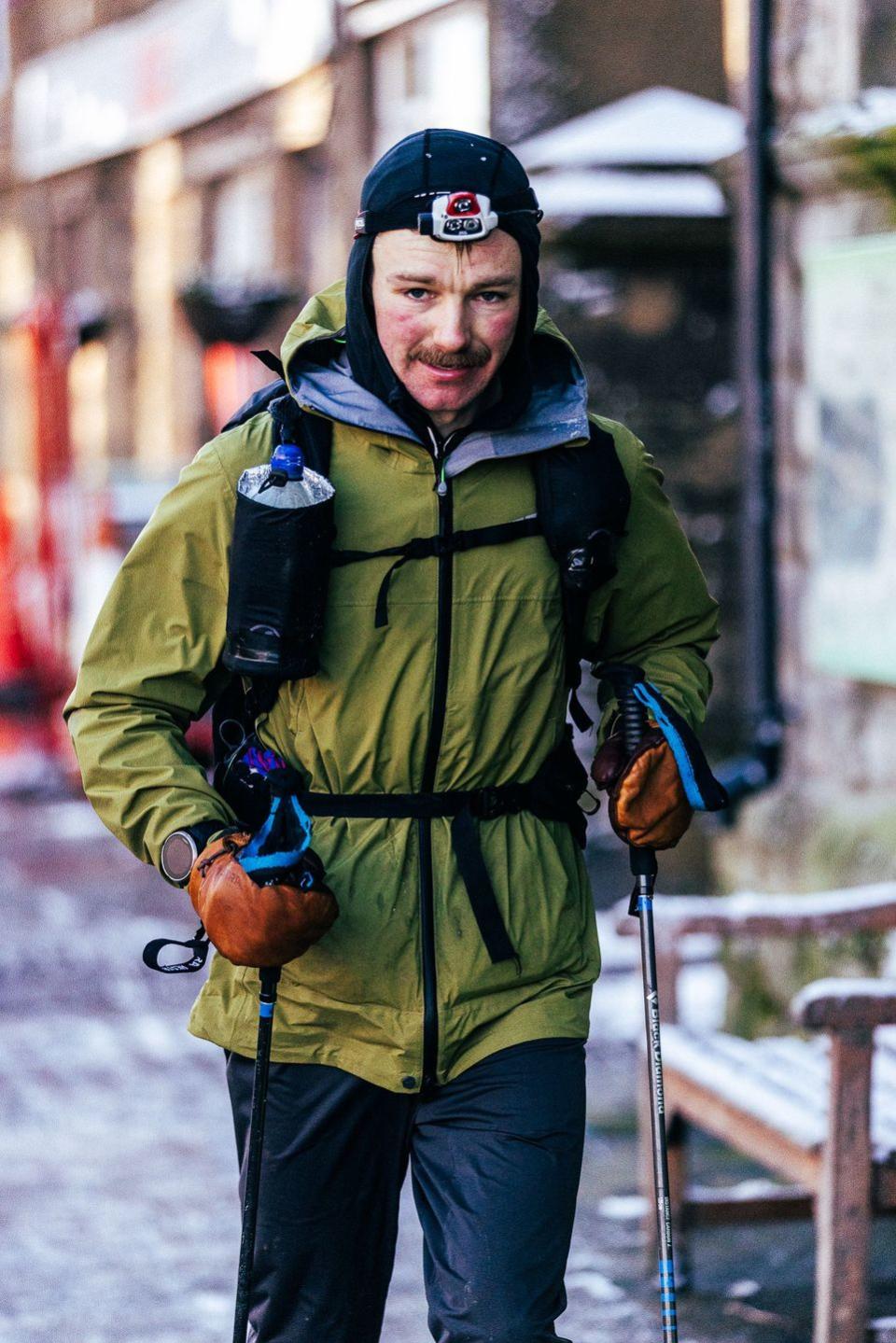Jack Scott: from gambling addiction to the Spine Race

It sounds like an anxiety dream. It’s a Wednesday evening in January, you’ve just finished running 268 miles over the icy hills of northern England and had a total of two hours and 20 minutes of sleep across three and a half days. Then someone says you need to be up early on Thursday to be coherent in front of Charlie Stayt and Naga Munchetty live on BBC Breakfast.
So it was for weary, moustachioed Jack Scott, who came a hard-fought second in the Montane Spine Race, and to the unfathomably chipper overall victor, Damian Hall. The TV appearance was a nice few minutes in the mainstream for the still under-covered sport of ultrarunning, which for spectators usually means watching numbered green dots move agonisingly slowly across a map on a phone screen. However, the interviewers’ questions didn’t go much deeper than some variation on 'Are you both completely mad?'
Hall, an ultrarunning veteran at 47, and Scott, 28, a relative newcomer who already has a number of incredible feats to his name, both knew what they were getting into. This June it will only be six years since Scott, a steel construction worker from Stone in Staffordshire, ran his first race, knocking out a 90-minute half marathon and starting to think he might be decent at this. But he quickly moved on to the big miles. In 2018 he came second in his first 100-miler, the Exodus 100 in the Brecon Beacons. In 2020 he beat a 32-year-old record set by Mike Hartley for running Scotland’s Southern Upland Way, covering the 214 miles in 55 hours and 45 minutes. And in 2021 he set a new winter FKT (fastest known time) for a 103-mile route between the 26 lakes, meres and waters of the Lake District: 24:31:29.

‘Even three years ago, if you’d told me I’d be running with Damian Hall in the Spine Race and we were both about to break the male record, I’d have said you were absolutely bonkers,’ he says. In a beautiful finale, Hall and Scott finished simultaneously, Hall in 84:36:24, while Scott, burdened with a time penalty, ended up with 85:16:24. ‘It was literally a dream come true.’
At the Spine, which journeys the full Pennine Way from Edale in the Peak District to Kirk Yetholm on the Scottish border, he could have won if it wasn’t for a navigational error that cost him the extra time. Near a diversion due to forest damage with which he was unfamiliar, he looked at the GPS on his phone upside down and turned left instead of right. At the next checkpoint, around three miles away, he let the race organisers know that he was aware of his mistake. They calculated the time he had gained and doubled it as a penalty.
Even then, he saw it as an opportunity. At the Bellingham checkpoint, with around 40 miles to go, he arrived while Hall was there asleep, spoke to his wife on the phone and felt encouraged to go for victory. ‘She asked if I thought I could turn up the heat for another five or six hours and pull Damian into an uncomfortable place, and I said: “Yeah, I think I can.” The next 16 or 17 miles were the fastest I moved in the whole race.’

But Hall finally found him in the foothills of the Cheviots, and his rival effectively agreed to second place around there. ‘I did try to pull away a little bit on the downhills but he had that 40-minute lead,’ Scott explains. ‘There was a point where I just shook his hand and that was the moment the race was over. Something was telling me: “You’ve got years in this sport. Hopefully there will be many more opportunities like this. This isn’t the moment to take another risk.” And that was 100 per cent the right decision.’
Knowing when to stop is a new skill for him. As recently as three years ago he was tight in the clutches of a gambling addiction that had made him a regular in betting shops in his late teens, then obsessed with an online culture where it is far easier to lose control. ‘I was earning good money and losing it and working my bollocks off to hide the fact that I was a gambling addict,’ he admits. At one point he was so immersed that he even took a punt on the Dutch election results.
It’s an oversimplification to suggest that running saved him from gambling. The two things overlapped for some time. In 2019 he won the 185-mile King Offa’s Dyke Race, during which he made the decision to ask his girlfriend to marry him. ‘The money for a ring was in the bank and I gambled – not all of it, but enough to jeopardise it and set the proposal back a few weeks. The fog was finally gone after that.’ He registered with the self-exclusion service Gamstop and the urge started to fade.
Yet it’s easy to tell, from the way he talks about his life then compared to his life now, that running has offered a powerful new focus. ‘They’re both hard, but at opposite extremes. To my eyes, something like the Spine Race is pure and clear, full of possibilities. Gambling is murky, dingy and dangerous and full of absolute misery.’
Is there any sense in which his life experience has made him a better runner? ‘I've been to hell and back and nothing good came of it for years and years,’ he says. ‘Now I’ve got an opportunity to make my own path with the same intensity, but there’s hope and there’s light. You can’t be harmed by anything that’s thrown at you. You’re untouchable.’
You Might Also Like

 Yahoo Sport
Yahoo Sport 





































